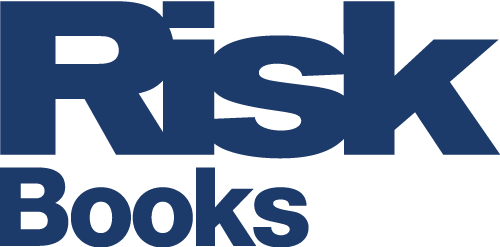Operational Risk Capital Models (2nd edition)
Operational Risk Capital Models (2nd edition)
Rafael Cavestany
Couldn't load pickup availability
Rafael Cavestany is back as the sole editor of this updated edition of Operational Risk Capital Models. Since the fall out of the Great Financial Crisis (GFC), regulators have been developing new guidance for financial institutions which define plausible responses to severe-impact scenarios (such as the GFC) for operational disruptions to critical business processes. How timely then, that this new edition should be written during a pandemic which has had far-reaching effects across the global economy and society.
Cavestany has reassembled a roster of operational-risk experts to pervasively analyse, quantify and identify the potential economic and operative consequences of this type of impact scenario through a more granular and critical tool: operational risk capital modelling.
This book provides the experiences of its authors during the successful implementation in organisations of operational risk capital models, best practices and industry standards, and the integration of the capital results into day-to-day risk management. The authors use the challenges described in the chapters to define the required elements in the operational risk capital modelling framework. The new chapters include:
Exposure Based Approaches and Bayesian Networks
Rafael Cavestany, Daniel Rodriguez and Emilio Lopez Cano
Operational Risk Correlations
Rafael Cavestany
Backtesting, Stress Testing and Sensitivity Analysis
Rafael Cavestany and Daniel Rodriguez
Regulatory Approval Report
Rafael Cavestany and Emilio Lopez Cano
This book presents to the practitioner the methods and processes required to address all the operational risk challenges, including operational resilience, a firm might face and to help them make practical decisions for determining the most appropriate model for projecting their institution’s operational risk capital needs.
Share
More information
About the Author
Table of contents
Acknowledgements ixList of Abbreviations xiGlossary xvAbout the Editor xxviiAbout the Authors xxix
Introduction 1Rafael Cavestany and Brenda Boultwood 1 Challenges of operational risk advanced capital models 11 Rafael Cavestany and Brenda Boultwood
PART I: CAPTURE AND DETERMINATION OF THE FOURDATA ELEMENTS 312 Collection of operational loss data: ILD and ED 33 Brenda Boultwood 3 Scenario analysis framework and BEICFs integration 63 Rafael Cavestany, Brenda Boultwood, Danial Rodriguez
PART II: GENERAL FRAMEWORK FOR OPERATIONALRISK CAPITAL MODELLING 1054 Loss data modelling: ILD and ED 107 Rafael Cavestany and Daniel Rodríguez Perez 5 Distributions for modelling operational risk capital 201 Daniel Rodríguez 6 Scenario analysis modelling 217 Rafael Cavestany OPERATIONAL RISK CAPITAL MODELS vi 7 Exposure-based approaches 231 Rafael Cavestany and Emilio Lopez Cano 8 BEICFs modelling and th eintegration into the capital model 241 Rafael Cavestany 9 Hybrid model construction: Integration of ILD, ED and SA 259 Rafael Cavestany, Daniel Rodríguez Perez and Fabrizio Ruggeri 10 Derivation of the joint distribution and capitalisation of operational risk 287 Rafael Cavestany and Daniel Rodríguez Perez 11 Backtesting, stress testing and sensitivity analysis 349 Rafael Cavestany, Daniel Rodriguez and Emilio Lopez Cano 12 Regulatory approval report 377 Rafael Cavestany 13 Evolving from a plain vanilla to a state-of-the-art model 399 Rafael Cavestany
PART III: USE TEST, INTEGRATING CAPITAL RESULTSINTO THE INSTITUTION'S DAY-TO-DAY RISK MANAGEMENT 40714 Strategic and operationa business planning and monitoring 411 Rafael Cavestany, Lutz Baumgarten and Brenda Boultwood 15 Risk/reward evaluation of mitigation and control effectiveness 435 Rafael Cavestany and Javier Martinez Moguerza
APPENDICES 4711 Credibility theory 473 Daniel Rodríguez 2 Mathematical optimisation methods required for operational risk modelling and other risk mitigation processes 483 Laureano F. Escudero 3 Business risk quantification 495 Lutz Baumgarten
